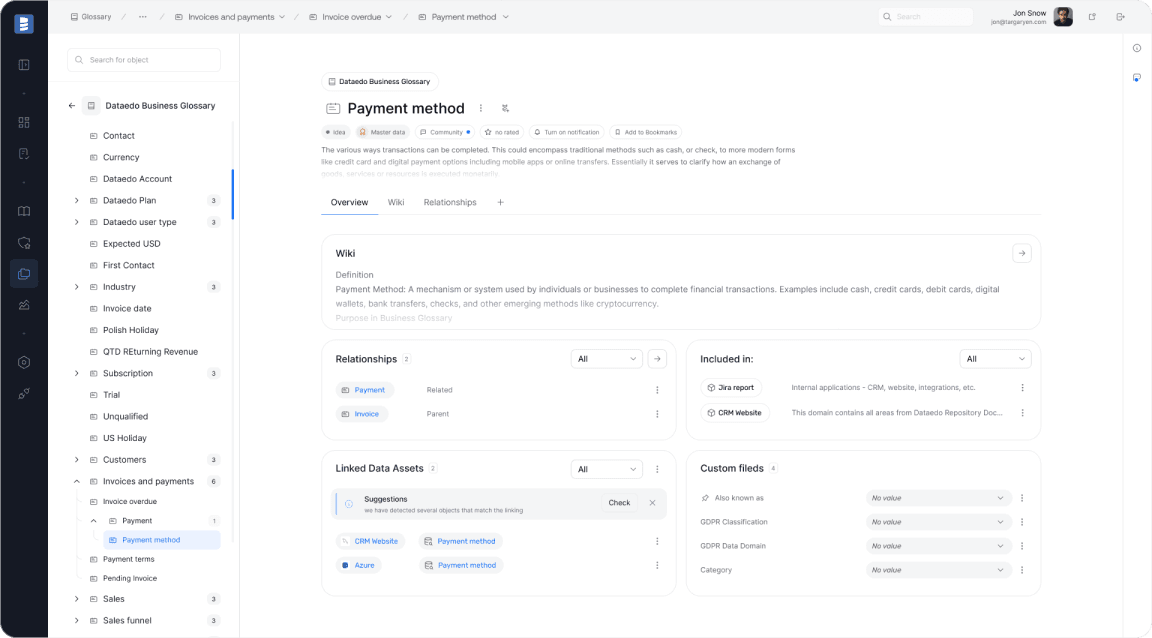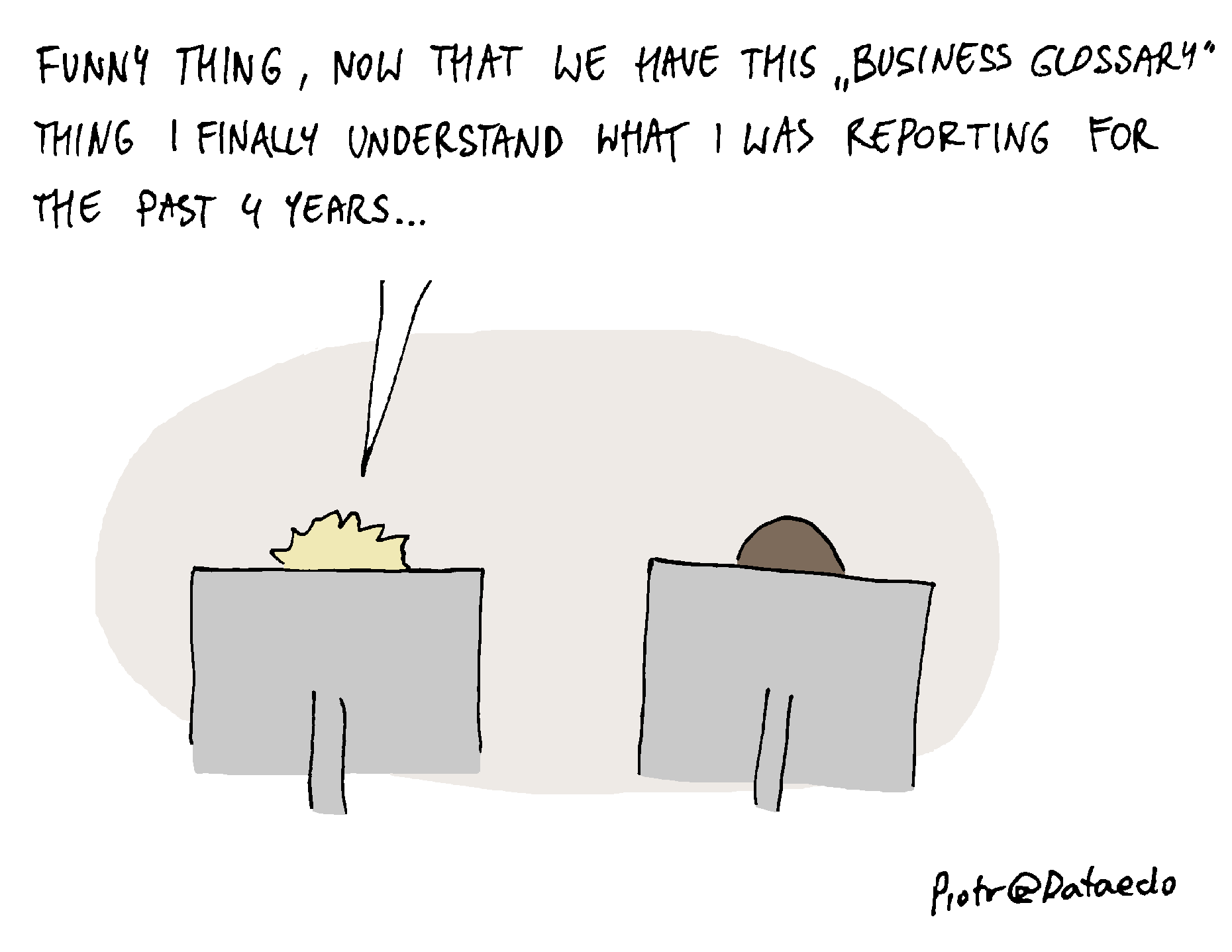Join 1000+ Satisfied Customers Using Dataedo


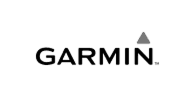




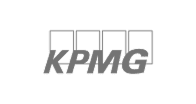






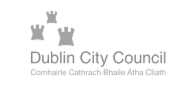

Build and share a universal glossary
of business terms, policies and rules
Dataedo Business Glossary helps you build and share a universal vocabulary
of business terms with their definitions and mapping to the data.
of business terms with their definitions and mapping to the data.
Map business vocabulary to your data
Build a business glossary and map it to the data dictionary of your entire data ecosystem in shared metadata repository. Build trust in data by linking definitions to their actual technical representation.
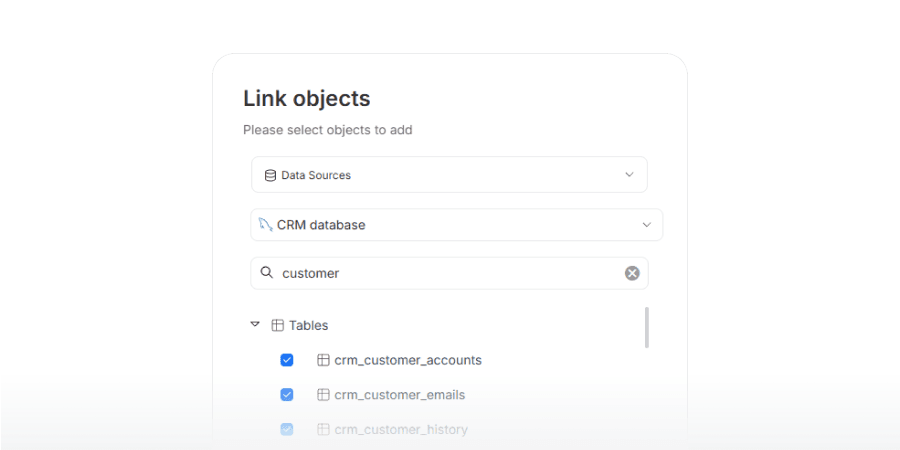
Add more meaning to your data
When exploring your data dictionary, users can instantly see standardized business definitions for each entity. Bring business context into technical metadata and bridge the gap between data and meaning.
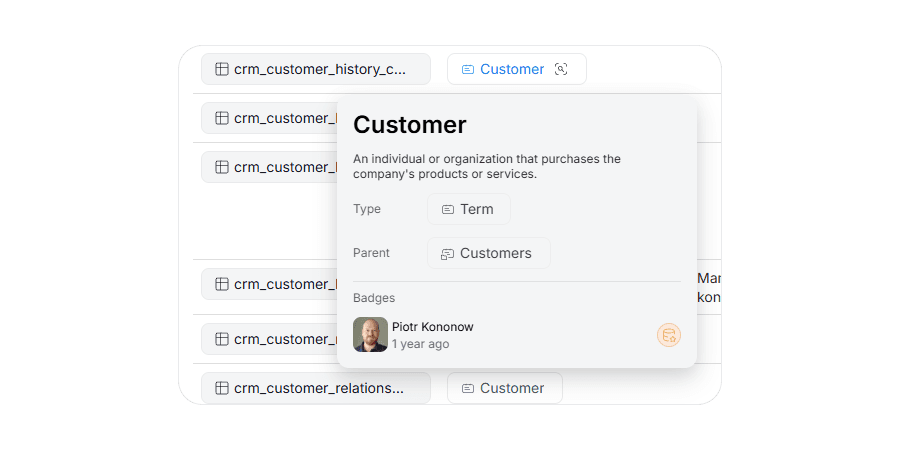
Find key data in all your databases easily
Databases can be huge and complex with thousands of tables and many more fields. With a business glossary-data dictionary links it is easy to find all occurrences of key data in all your databases - like "Customer" or "Revenue".
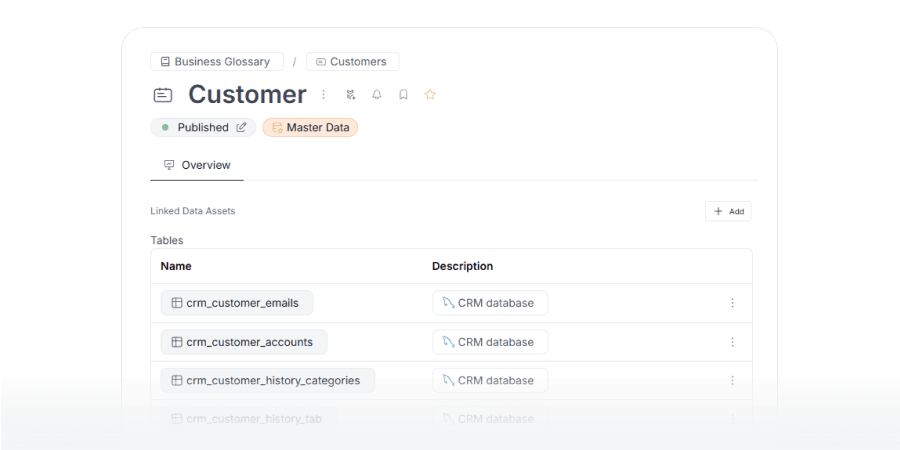
Simplify description of technical metadata
It is easier for technical people to create a technical data dictionary. They can focus on application specific attributes and simply link existing business definitions from the glossary created by the business users.
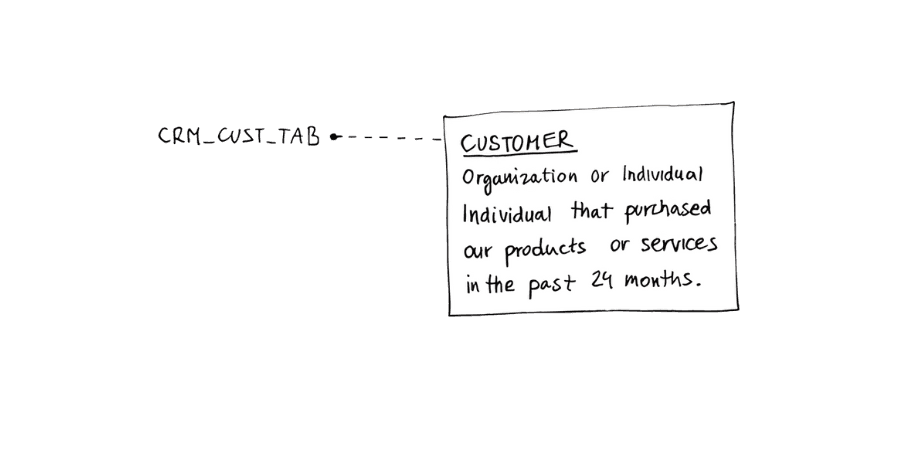
Promote consistency and compliance
Standardize KPIs, metrics, and terminology across departments. Eliminate confusion, reduce reporting errors, and ensure compliance with internal and regulatory standards.
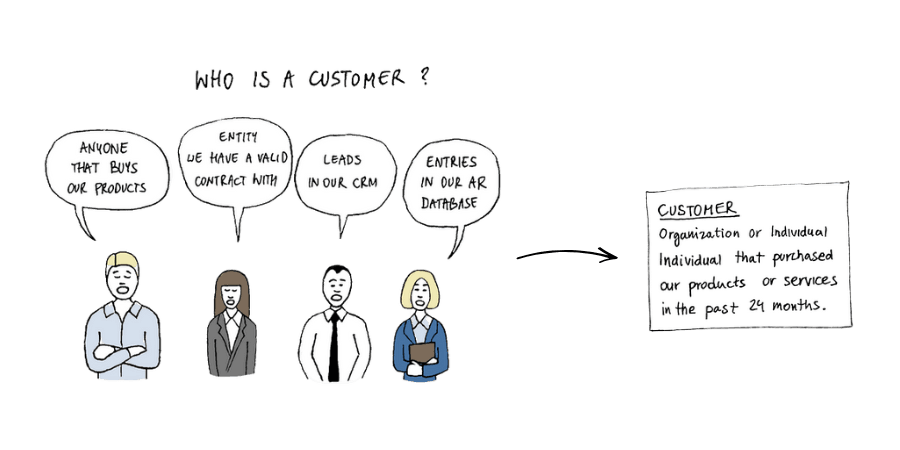
Foster collaboration and shared ownership
Engage both business and technical teams in a shared platform where terms can be discussed, reviewed, and approved. Build a living, governed glossary that evolves with your organization.
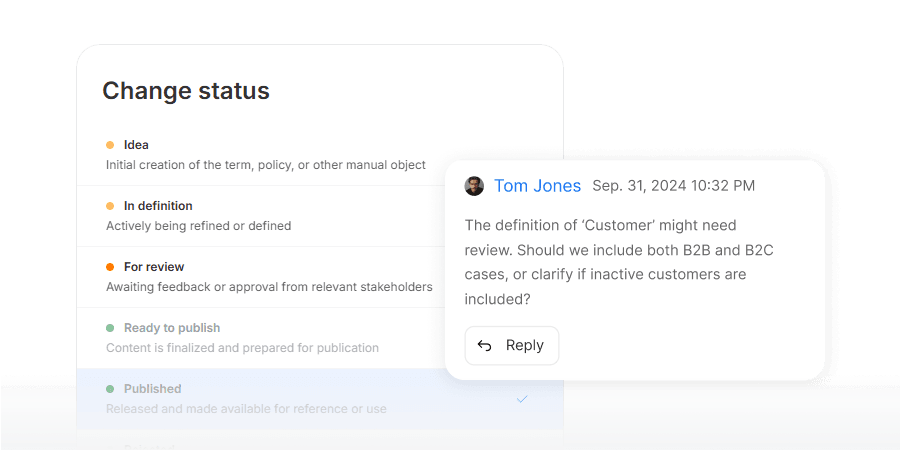
Get everyone on the same page
Get more out of your data and IT initiatives
Build a single source of truth about your data
Business glossary is a go to reference place where everyone in your organization can go for the answers on how to read, understand and find the data.
Help everyone create and read the reports
Established universal definitions of key concepts accelerate articulation of requirements for new reports and analytics, the design of the solution and later understanding of the presented numbers.
Better collaboration between departments, including business-IT
Allow everyone in the organization to speak the same language, break down silos and build collaboration, including on the line between business and IT.
Empower your business to use data
With a business glossary mapped to data dictionary your business can be more self-reliant and from navigate from business-oriented vocabulary to the physical data, otherwise accessible only to the tech-geeks who know the complicated structure of the databases.
Key features
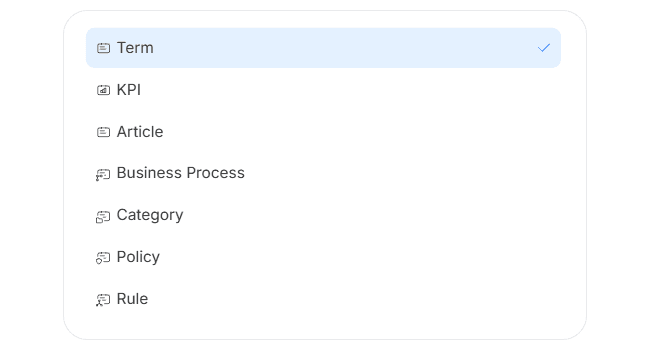
Terms, policies & rules
Document business terms, KPIs, policies, and rules to create a single source of truth for how your organization defines and measures data.
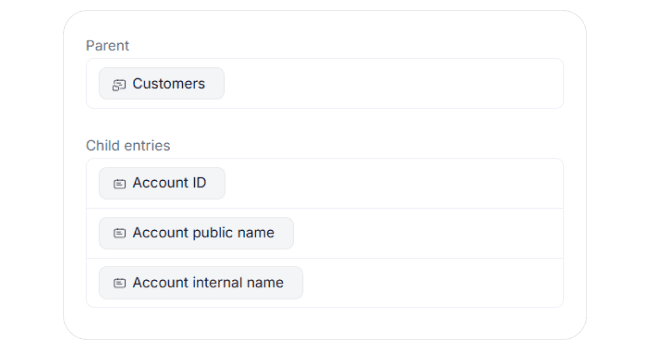
Hierarchy and relationships
Organize glossary entries into logical hierarchies and define parent-child or associative relationships between related terms.
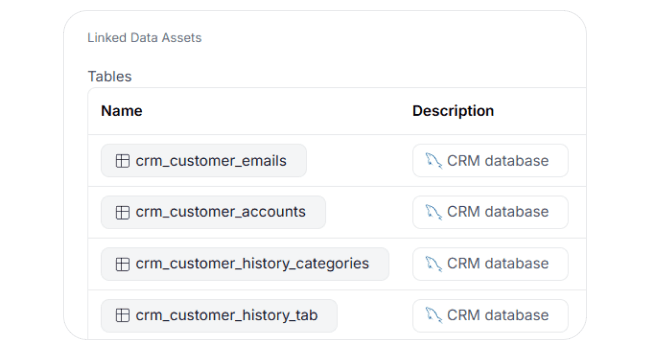
Links to data elements in data dictionary
Terms, policies and rules can be mapped to data dictionary elements (tables and columns).
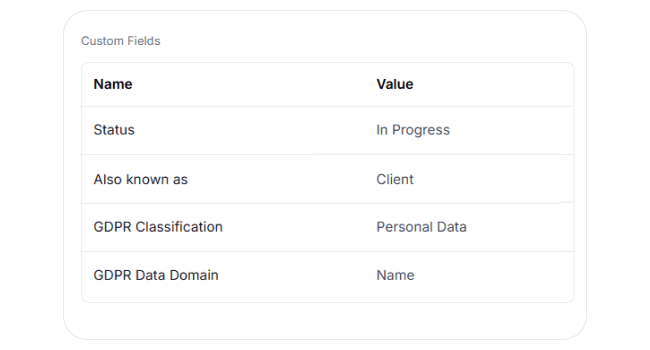
Custom attributes
Extend your glossary with custom metadata fields. Capture ownership, classification, domain, or any organization-specific context.
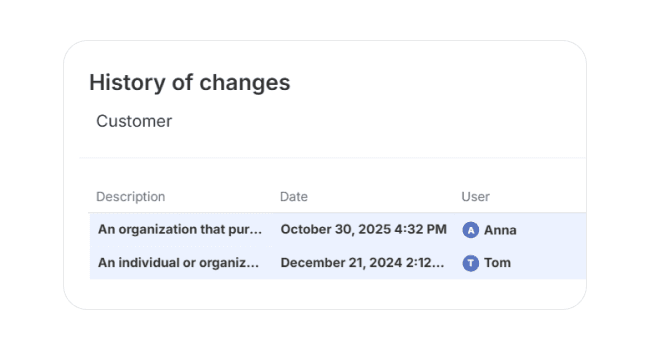
Version history
Track how definitions evolve over time and who made changes, ensuring accountability and transparency.
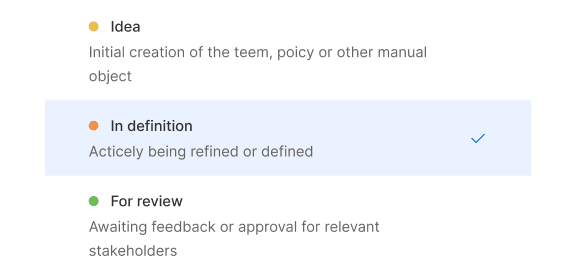
Collaborative curation & approval workflows
Enable business and data stewards to propose, review, and approve glossary changes collaboratively, ensuring quality and consistency.
Use cases
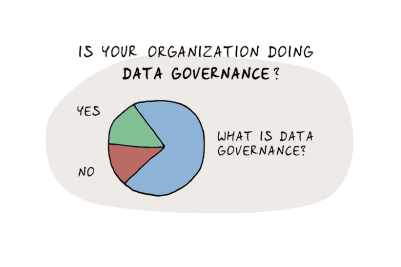
Data Governance
The business glossary is a foundational asset for any data governance initiative, ensuring consistent definitions and policies across the organization.

BI & Analytics
Define measures, KPIs, facts, and dimensions in your analytics ecosystem, improving reporting accuracy and enabling self-service insights.

Enterprise Architecture
Define and share key entities of your enterprise data model and map it to physical data model.
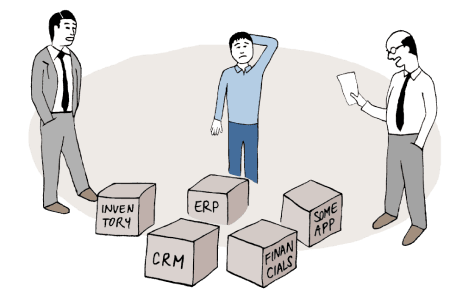
ERP and Applications
Add a layer of your organization’s vocabulary to the inadequate, confusing and generic naming in databases of packaged applications.
Why our customers love Dataedo?
Dataedo is a lightweight solution with great customer service and active product development (recently data quality). The ability to run SQL scripts on the repository brings additional flexibility."
We jump started all of our Data Governance efforts using the tool. We documented key databases quickly and easily and published the information to our analyst community."
Dataedo is an amazing tool that continues to grow and improve."
Datedo consistently improves while delivering exceptional support that is quick, competent, and highly reliable."
Dataedo is easy to use, offers great functionality, and provides excellent customer service that always listens to the customer."
Dataedo excels at data cataloging, and the support from the Dataedo team is top-notch."
Dataedo provides ease of use and covers so many areas from a Data Governance perspective. You really can put everythng in one place."
Dataedo is a fantastic tool, and I love working with it—especially with the continuous improvements being made and planned."
Join 1000+ Satisfied Customers Using Dataedo









Piotr Kononow
Founder
Build a common language with a Business Glossary
Explore Dataedo through a preconfigured data catalog with sample data, try it with your own data during a 14-day free trial, or book a demo.

